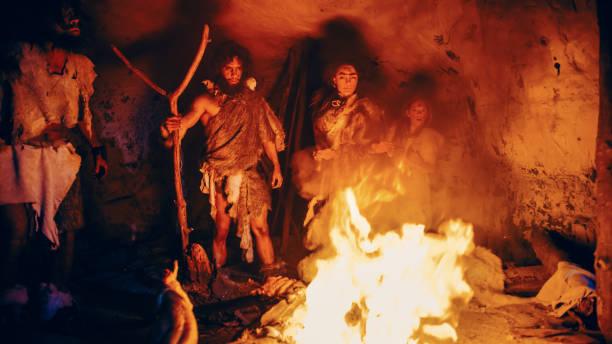Human history is a multifaceted and complex subject that has been shaped by a range of factors, including social, economic, political, and environmental forces. Over the course of thousands of years, humans have adapted and evolved in response to changing conditions, developing complex societies and cultural traditions that continue to influence our world today. This research paper aims to provide a broad overview of human history, tracing the major events and developments that have shaped our collective past.
Table of Contents
Prehistory:

The earliest humans appeared on Earth around 2.5 million years ago, and over time, they developed the capacity for language, tool-making, and social organization. Our prehistoric ancestors hunted, gathered, and migrated across the planet, adapting to changing climates and environments. As they developed agriculture and domesticated animals, humans were able to settle in one place, leading to the emergence of the first civilizations.
Ancient Civilizations:

Ancient civilizations such as the Sumerians, Egyptians, and Greeks developed sophisticated systems of government, art, and literature. The rise of empires such as Rome and China brought about new forms of governance, trade, and cultural exchange. As societies became more complex, religion played an important role in shaping people’s beliefs and values, and it continues to do so in many parts of the world today.
The Middle Ages and Renaissance:
The Middle Ages saw the emergence of powerful monarchies and the spread of Christianity, while the Renaissance marked a period of renewed interest in classical learning and the arts. The Age of Exploration opened up new lands and opportunities for trade, leading to the colonization of the Americas and the establishment of global trade networks.
The Industrial Revolution:

The Industrial Revolution, which began in the late 18th century, transformed the world through the mass production of goods, the rise of urbanization, and the development of new technologies such as steam power and the telegraph. This period saw a significant social and economic change, as well as the rise of capitalist systems and the growth of the middle class.
The Modern Era:

The 20th century saw unprecedented levels of global conflict, including two world wars and the Cold War, as well as significant advancements in science, medicine, and technology, including space exploration and the development of the internet. The post-World War II period brought about new challenges and opportunities, including the rise of globalization, the spread of democracy, and the increasing importance of environmental issues.
Conclusion:
Human history is a vast and complex subject that encompasses a wide range of experiences and perspectives. Over thousands of years, humans have adapted and evolved in response to changing conditions, developing complex societies and cultural traditions that continue to shape our world today. Understanding our collective past is crucial to making sense of the present and shaping a better future. This research paper has provided a broad overview of human history, tracing the major events and developments from prehistory to the present day.
Author
Stay connected for new publications, events, and more.







More Stories
Toussaint Louverture : L’Héritage Immortel d’un Révolutionnaire à l’Occasion de l’Anniversaire de Sa Mort
Cheikh Anta Diop : L’homme qui a redessiné les racines de l’Afrique
Rosa Parks : L’icône du mouvement des droits civiques qui a changé l’histoire